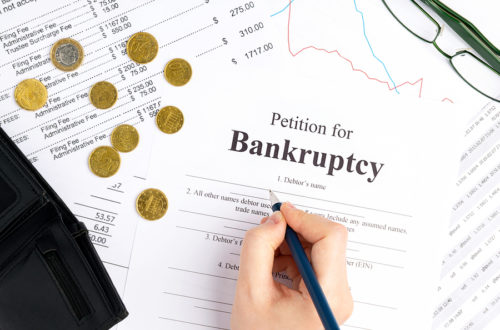The government’s Public Service Loan Forgiveness Program promises to cancel any remaining student debt for those who work government jobs or for non-profit organizations and have been making continuous payments for 10 years. The first borrowers to receive forgiveness will be eligible in October of this year, which is 10 years from the launch of the program.
Many teachers, public defenders, Peace Corps workers, and law enforcement officers may qualify for forgiveness. More than 400,000 people have applied for the program so far, but signing up for the program can be a confusing, (and not surprisingly) complicated process.
Here are 5 steps you can take to help ensure your eligibility:
- Find out if your job qualifies. There are three different types of jobs eligible.
- Government jobs, which include federal, state, local and tribal government entities, as well as the military, Peace Corps and AmeriCorps positions.
- People who work for a 501(c)(3) non-profit.
- People who work for a non-profit that does not have 501(c)(3) status, but provides a public service.
- Turn in the Employment Certification form annually. Ask your loan servicing company to certify that your employer qualifies on an annual basis and keep detailed records. Otherwise, you risk finding out that your job does not qualify after making years of payments.
- Verify you have the right kind of loan. Only Direct Loans qualify for this forgiveness program.
- Enroll in an income-driven repayment plan, each year. You must be enrolled in an income-driven repayment plan for at least a portion of your repayments. These plans cap your monthly bill at a certain portion of your income.
- Make 120 qualifying monthly payments. FedLoan Servicing will tell you how much you need to pay each month for the payment to count toward the 120 needed to receive debt forgiveness. If you pay any less, it will not count. And if you pay more, it will only count as one payment. Payments must be made no later than 15 days after the due date. Any payments you make while in school, during the six-month grace period after school, or while in deferment or forbearance do not count toward the 120.
Click here to read more on this story.
For borrowers who are struggling with student loan debt, relief options are available. Many student loan borrowers are unaware that they have rights and repayment options available to them, such as postponement of loan payments, reduction of payments or even a complete discharge of the debt. It is important you contact an experienced Miami bankruptcy attorney who can advise you of all your options. As an experienced CPA as well as a proven bankruptcy lawyer, Timothy Kingcade knows how to help clients take full advantage of the bankruptcy laws to protect their assets and get successful results. Since 1996 Kingcade & Garcia, P.A. has been helping people from all walks of life build a better tomorrow. Our attorneys help thousands of people every year take advantage of their rights under bankruptcy protection to restart, rebuild and recover. The day you hire our firm, we will contact your creditors to stop the harassment. You can also find useful consumer information on the Kingcade & Garcia website at www.miamibankruptcy.com.

